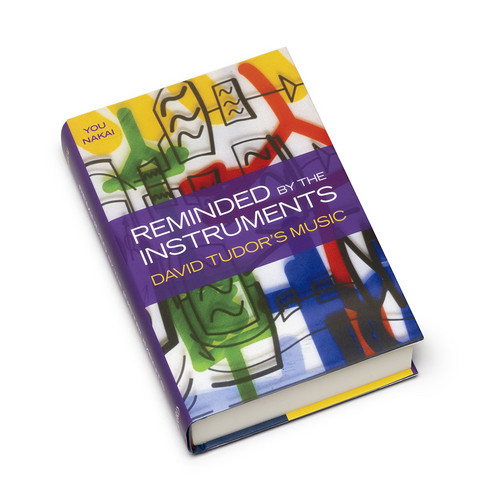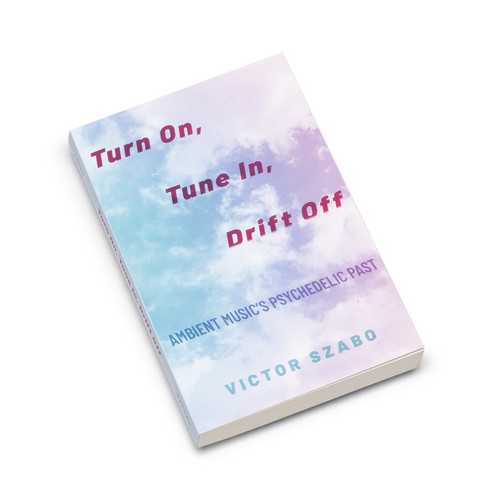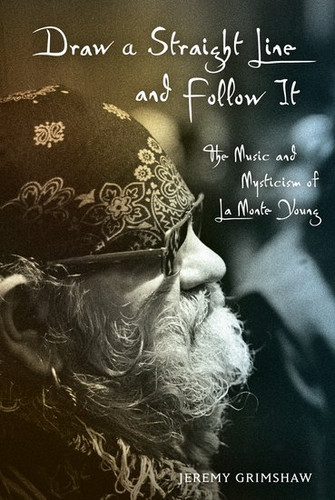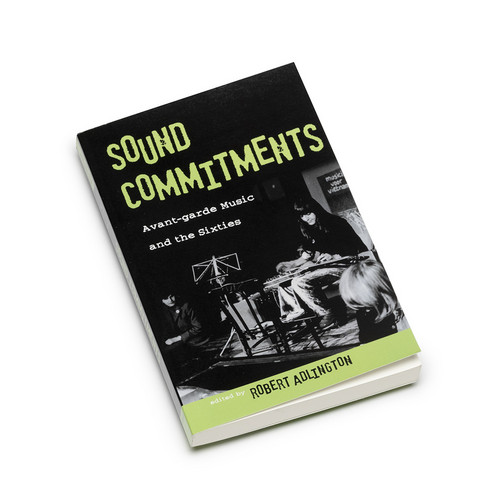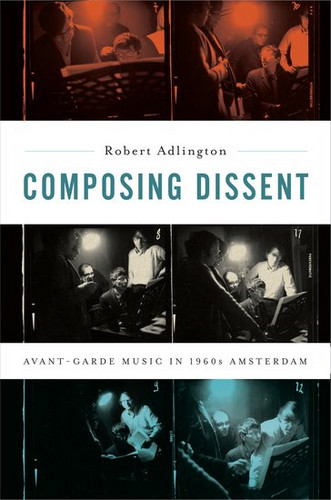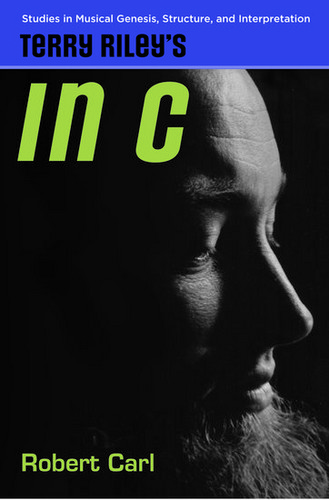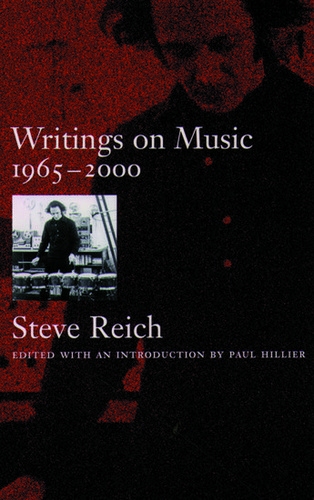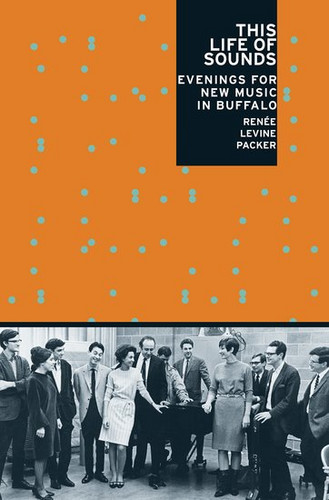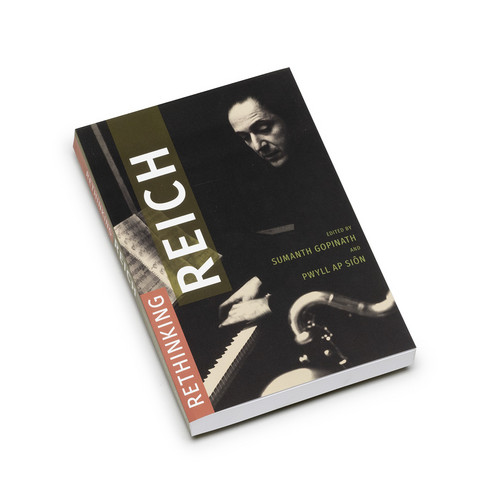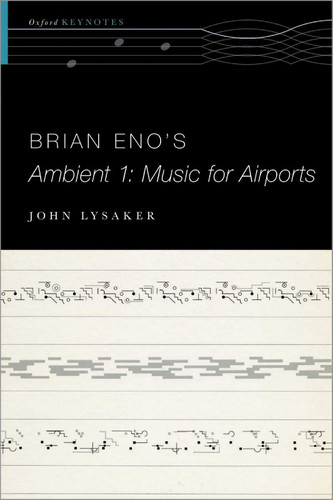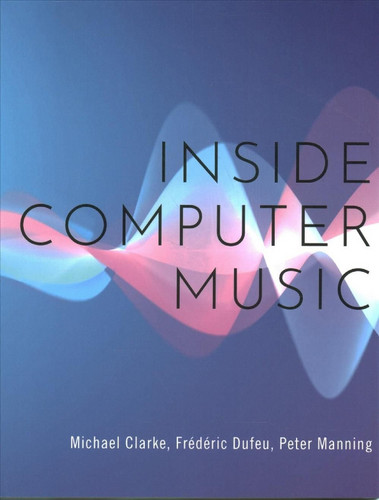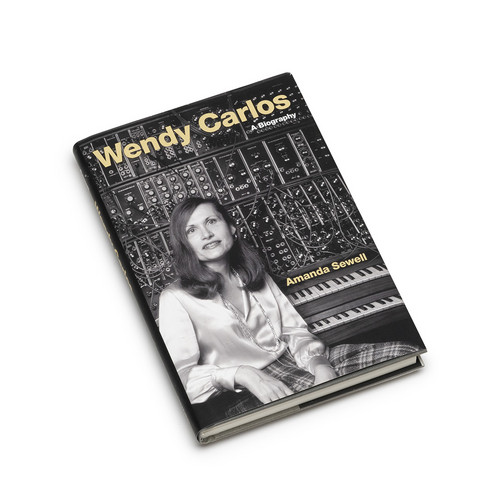★Oxford University Press
Reminded by the Instruments. David Tudor's Music (Book)
** 768 Pages | Over 300 illustrations ** David Tudor is remembered today in two guises: as an extraordinary pianist of post-war avant-garde music who worked closely with composers like John Cage and Karlheinz Stockhausen and as a founding figure of live-electronic music. His early realization of indeterminate graphic scores and his later performances using homemade modular instruments both inspired a whole generation of musicians. But his reticence, his unorthodox approaches, and the diversity …
Turn On, Tune In, Drift Off: Ambient Music's Psychedelic Past
** 376 Pages, soft cover ** Turn On, Tune In, Drift Off: Ambient Music's Psychedelic Past rethinks the history and socioaesthetics of ambient music as a popular genre with roots in the psychedelic countercultures of the late twentieth century. Victor Szabo reveals how anglophone audio producers and DJs between the mid-1960s and century's end commodified drone- and loop-based records as "ambient audio": slow, spare, spacious audio sold as artful personal media for creating atmosphere, fostering c…
Draw a Straight Line and Follow It (Book)
* Hardcover Edition * Although La Monte Young is one of the most important composers of the late twentieth century, he is also one of the most elusive. Generally recognized as the patriarch of the minimalist movement—Brian Eno once called him "the daddy of us all"—he nonetheless remains an enigma within the music world. Early in his career Young eschewed almost completely the conventional musical institutions of publishers, record labels, and venues, in order to create compositions completely un…
Sound Commitments (Book)
Featuring new archival research and/or interviews with significant figures of the period in each chapter, Sound Commitments will appeal to researchers and advanced students in the fields of post-war music, cultures of the 1960s, and the avant-garde, as well as to an informed general readership.
Composing Dissent (Book)
The 1960s saw the emergence in the Netherlands of a generation of avant-garde musicians (including figures such as Louis Andriessen, Willem Breuker, Reinbert de Leeuw and Misha Mengelberg) who were to gain international standing and influence as composers, performers and teachers, and who had a defining impact upon Dutch musical life. Fundamental to their activities in the sixties was a pronounced commitment to social and political engagement. The lively culture of activism and dissent on the st…
Terry Riley's in C (Book)
Unquestionably the founding work of minimalism in musical composition, Terry Riley's In C (1964) challenges the standards of imagination, intellect, and musical ingenuity to which "classical" music is held. Only one page of score in length, it contains neither specified instrumentation nor parts. Its fifty-three motives are compact, presented without any counterpoint or evident form. The composer gave only spare instructions and no tempo. And he assigned the work a title that's laconic in the ex…
Writings on Music (Book)
In the mid-1960s, Steve Reich radically renewed the musical landscape with a back-to-basics sound that came to be called Minimalism. These early works, characterized by a relentless pulse and static harmony, focused single-mindedly on the process of gradual rhythmic change. Throughout his career, Reich has continued to reinvigorate the music world, drawing from a wide array of classical, popular, sacred, and non-western idioms. His works reflect the steady evolution of an original musical mind.W…
This Life of Sounds (Book)
This Life of Sounds portrays an important and previously unexplored corner of the history of new music in America: the Center of the Creative and Performing Arts int eh State University of New York at Buffalo. Composers Lukas Foss (the Center's founder), Lejaren Hiller, and Morton Feldman were the music directors over the life of "the Buffalo group," during the years 1964-1980. Based on Foss's plan, the Rockefeller Foundation provided annual fellowships for young composers and virtuoso instrumen…
Rethinking Reich (Book)
Described by music critic Alex Ross as "the most original musical thinker of our time" and having received innumerable accolades in a career spanning over fifty years, composer Steve Reich is considered by many to be America's greatest contemporary composer. His music, however, remains largely underresearched. Rethinking Reich redresses this imbalance, providing a space for prominent and emerging scholars to reassess the composer's contribution to music in the twentieth century. Featuring fourte…
Brian Eno's Ambient 1 (Book)
Brian Eno's seminal album Ambient 1: Music for Airports continues to fascinate and charm audiences, not only as a masterpiece of ambient music, but as a powerful and transformative work of art. Author John T. Lysaker situates this album in the context of twentieth-century art music, where its ambitions and contributions to avant garde music practice become even more apparent. To appreciate the album's multifaceted character, Lysaker advocates for "prismatic listening," an attentiveness that cont…
Inside Computer Music (Book)
Inside Computer Music is an investigation of how new technological developments have influenced the creative possibilities of composers of computer music in the last 50 years. This book combines detailed research into the development of computer music techniques with nine case studies that analyze key works in the musical and technical development of computer music. The book's companion website offers demonstration videos of the techniques used and downloadable software. There, readers can view …
Wendy Carlos: A Biography
This book is the first full-length biography to be written about the American composer and electronic musician Wendy Carlos (b. 1939). With her debut album, Switched-On Bach, Carlos brought the sound of the Moog synthesizer to a generation of listeners. She not only blazed new trails in electronic music for decades but also intersected with many aspects of American culture during the second half of the twentieth century and well into the twenty-first. Her story features an eclectic cast of chara…
